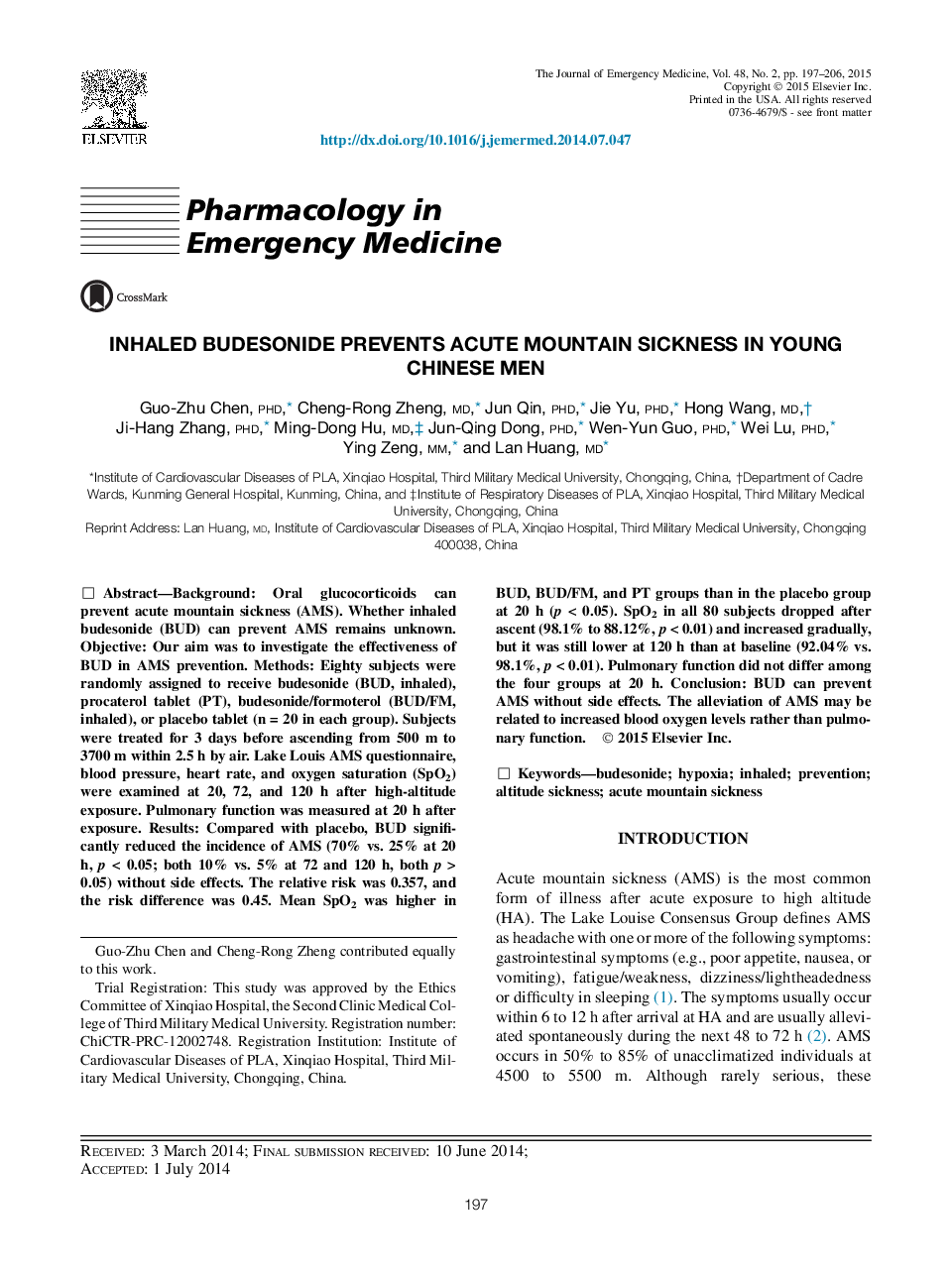| Article ID | Journal | Published Year | Pages | File Type |
|---|---|---|---|---|
| 3246942 | The Journal of Emergency Medicine | 2015 | 10 Pages |
BackgroundOral glucocorticoids can prevent acute mountain sickness (AMS). Whether inhaled budesonide (BUD) can prevent AMS remains unknown.ObjectiveOur aim was to investigate the effectiveness of BUD in AMS prevention.MethodsEighty subjects were randomly assigned to receive budesonide (BUD, inhaled), procaterol tablet (PT), budesonide/formoterol (BUD/FM, inhaled), or placebo tablet (n = 20 in each group). Subjects were treated for 3 days before ascending from 500 m to 3700 m within 2.5 h by air. Lake Louis AMS questionnaire, blood pressure, heart rate, and oxygen saturation (SpO2) were examined at 20, 72, and 120 h after high-altitude exposure. Pulmonary function was measured at 20 h after exposure.ResultsCompared with placebo, BUD significantly reduced the incidence of AMS (70% vs. 25% at 20 h, p < 0.05; both 10% vs. 5% at 72 and 120 h, both p > 0.05) without side effects. The relative risk was 0.357, and the risk difference was 0.45. Mean SpO2 was higher in BUD, BUD/FM, and PT groups than in the placebo group at 20 h (p < 0.05). SpO2 in all 80 subjects dropped after ascent (98.1% to 88.12%, p < 0.01) and increased gradually, but it was still lower at 120 h than at baseline (92.04% vs. 98.1%, p < 0.01). Pulmonary function did not differ among the four groups at 20 h.ConclusionBUD can prevent AMS without side effects. The alleviation of AMS may be related to increased blood oxygen levels rather than pulmonary function.
